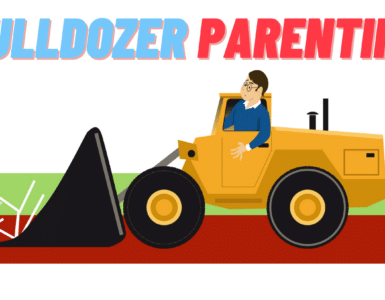If you want to parent in a way that encourages your child to be confident, independent, empathetic, and self-assured, then the gentle parenting approach might be right for you.
Gentle parenting, also known as “peaceful parenting” or “attachment parenting” is a parenting style that focuses on building a strong emotional connection with your child.
There’s also a strong focus on being empathetic, affectionate, and nurturing in order to create a safe and loving environment where children feel respected and heard.
Gentle parenting is similar to Montessori parenting because both approaches focus on child-centered learning and growth and they both use positive discipline techniques. The major difference, however, is that Montessori parenting has a strong focus on a child’s educational development, while gentle parenting focuses more on the child’s emotional development.
So how does gentle parenting work?
Some specific techniques used in gentle parenting include:
Attentiveness: Gentle parents are attentive to their children’s needs and want, and respond to them promptly. They listen to their children and validate their feelings, creating a safe and secure environment for the child to express themselves.
Empathy: Gentle parents try to understand their children’s perspectives and feelings. They approach every situation with empathy, putting themselves in the child’s shoes, and responding with compassion and understanding.
Nurturing: Gentle parents provide a nurturing environment for their children, offering physical touch, love, and affection. This helps the child feel secure and loved and can foster a strong emotional bond.
Gentle Discipline: Gentle parenting emphasizes positive reinforcement and gentle discipline techniques, such as redirecting the child’s behavior or using natural consequences to help them learn. Physical punishment and harsh criticism are discouraged in favor of more compassionate and understanding approaches.
Active Listening: Gentle parents engage in active listening, giving their full attention and not interrupting their child. This helps children feel heard and understood and fosters strong communication skills.
Playfulness: Gentle parents encourage play and creativity in their children, fostering a sense of fun and joy in the family. Playtime can also be a valuable opportunity for building bonds and connecting with children.
Gentle parenting works, even for difficult kids
I know what you’re thinking to yourself. The gentle parenting approach might be great for quiet kids or kids who are naturally mellow and well-behaved, but what if you have a little one who’s a terror and throws tantrums in the middle of the local shopping mall?
Children act out for a variety of reasons. Punishing a child who is throwing a tantrum is not addressing the root of the problem and can frustrate kids and cause them to act out even more.
Gentle parents will try to identify the root cause of any aggressive behavior and seek to help the child find ways to vent frustrations in more productive ways.
Rather than sending Tommy to the corner every time he throws his corn flakes as his sister, his parents will make sure is sleeping well, getting enough exercise, and has enough mental stimulation during the day so that he is not acting out of tiredness or boredom.
If a child is acting out, parents will talk to the child about their behavior, but not in an angry way to make them feel bad. Instead, they are asking questions to find out what is causing that behavior. They work with their child to find healthy alternatives to screaming and throwing things. If a child is upset about something, they are taught how to use their words or scream into a pillow rather than kicking their mom or dad in the shin.
In the middle of a meltdown, gentle parents will soothingly speak to the child to calm them down and help them know that their frustrations are being heard and acknowledged. They will get down to their child’s level so that they don’t feel intimidated. Parents offer words of comfort while the child is screaming their head off.
ALSO: Parenting Style — Are You Authoritative, Permissive, or Authoritarian?
Instead of yelling, using time-out, or other punishment methods, gentle parents use positive discipline techniques like consistent communication, positive reinforcement, and distraction to discourage negative behavior.
Gentle parenting isn’t always easy
It takes a lot of effort and time to be a gentle parent. You’re constantly in communication with your child and explaining EVERYTHING.
“It’s all about teaching, rather than punishing,” says author and parenting expert Sarah Ockwell-Smith.
Even though it’s exhausting, your child will be better at communicating and being social. When they get older, they will develop healthier friendships and relationships because they will use the same approaches that you did to resolve conflicts and communicate with their peers. Imagine what the world would be like if most of us were raised in this way?
What kind of parent or parents did you have growing up? Were they strict, lenient, emotionless, or nurturing?
The way your parents raised you shaped who you are and has had a profound effect on your mental health, habits, self-image, and your relationships with others.










Add comment